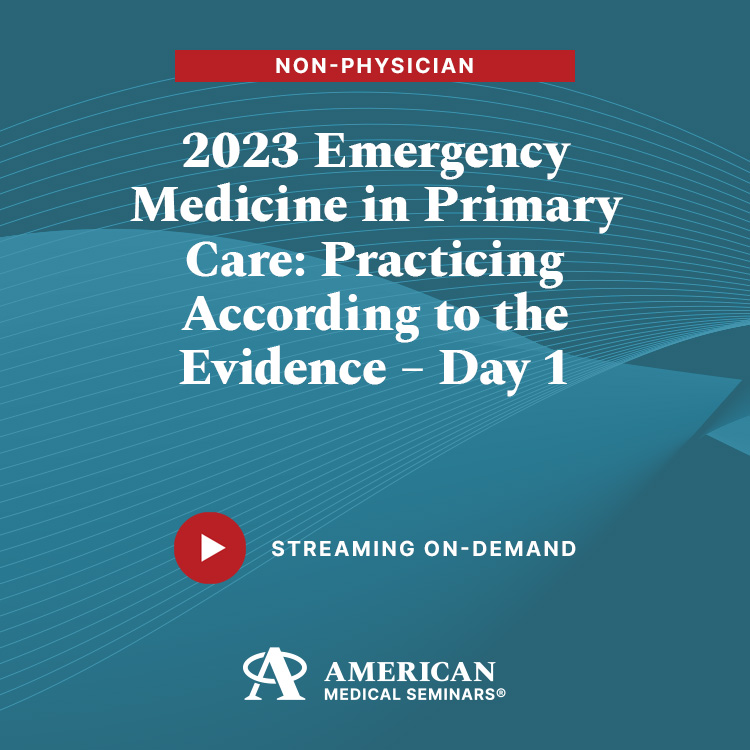Title: 2023 Emergency Medicine in Primary Care: Practicing According to the Evidence – Day 1 (Non-Physician)
Faculty: Bryant Allen, M.D., F.A.C.E.P., F.A.A.E.M.; Andrew D. Perron, M.D., F.A.C.E.P., F.A.C.S.M.; and Michael E. Winters, M.D., M.B.A., F.A.C.E.P., F.A.A.E.M.
Release Date: 7/1/2023 Expiration Date: 7/1/2026
Day 1
Thrombolysis for Stroke. (Perron)
Upon completion of this session, the participant should be able to: GL, COMP
- Analyze and integrate the principles and pathophysiology of stroke and stroke treatment.
- Appraise the applicable medical literature that is available to the clinician along with the latest ASA Guidelines.
- Debate the performance of thrombolysis for stroke to this point in time.
- Appraise the controversy in the medical literature regarding this therapy.
- Determine emerging technologies and therapies that may prove useful for the treatment of stroke in the ED.
PE and DVT in the Emergency Department. (Perron)
Upon completion of this session, the participant should be able to: EBM, GL, COMP
- Analyze the scope of the problem of thromboembolic disease in the ED.
- Employ the latest diagnostic algorithms and adjuncts available to aid the clinician in the diagnosis of thromboembolic disease.
- Appraise the evidence-based treatment of thromboembolic disease based on the latest applicable literature and apply applicable ACEP Guidelines.
- Assess the limitations of current diagnostic modalities for these diseases.
Pulmonary Emergencies: Pneumothorax and Pleural Effusions (Allen)
Upon completion of this session, the participant should be able to: COMP,EBM
- Describe imaging strategies in the evaluation and diagnosis of pneumothorax.
- Discuss current management guidelines for both traumatic and spontaneous pneumothorax.
- Discuss variation in management from malignant and non-malignant pleural effusions.
Aortic Emergencies. (Allen)
Upon completion of this session, the participant should be able to: COMP,EBM
- Specify the pathophysiology and clinical presentations, and formulate ED management using evidence-based medicine of the following:
- Abdominal aortic aneurysm,
- Traumatic aortic disruption,
- Essentials of aortic dissection.
Nephrolithiasis & Pyelonephritis. (Allen)
Upon completion of this session, the participant should be able to: COMP, GL, EBM
- Illustrate the pathophysiology and clinical presentation of these two entities.
- Specify the best-evidence strategy in both imaging for diagnosis of nephrolithiasis and management of this pathology in the Emergency Department.
- Discuss the classifications of upper urinary tract infections and pyelonephritis, as current IDSA guidelines for treatment of these classifications.
- The receipt for any incentive-associated purchase will designate the value of the gift card separately from the cost of the learning activity.
- This incentive may have implications on your tax reporting obligations. Any reimbursed amount must be declared as personal income for tax purposes.

